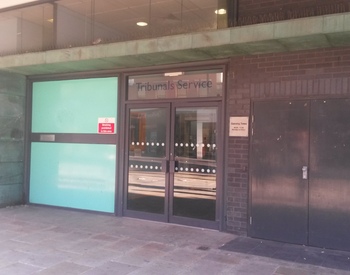Guidance sets out when the Home Office may be required to reimburse successful appellants
The judiciary on Tuesday published further guidance on wasted costs and unreasonable costs and on the correct approach to applications for costs made in proceedings before the First-tier Tribunal (Immigration and Asylum Chamber).
 Image credit: UK GovernmentPresidential Guidance Note No. 2 of 2018 sets out the guidance and it can be downloaded here.
Image credit: UK GovernmentPresidential Guidance Note No. 2 of 2018 sets out the guidance and it can be downloaded here.
The guidance consists of short points of principle and practice, drawn from the reported cases of Cancino [2015] UKFTT 00059 (IAC) and Awuah and Others [2017] UKFTT 00555 (IAC) and from the unreported decision in Awuah and Others (2).
For a succinct overview and explanation of the new guidance, see here for a post by Elizabeth Ruddick at Wesley Gryk solicitors.
Ruddick explains that the new Presidential Guidance Note sets out when the Home Office may be required to reimburse successful appellants for their legal costs.
She continues: "The guidance does not establish a general principle that Appellants should always be compensated for their legal costs if they win an appeal. What it does do is set out unambiguously that the Home Office should concede appeals it is clearly going to lose, and do so at an early stage. Given that the Home Office now loses 50% of appeals that go to a full hearing, this guidance has the potential to benefit a large number of Appellants and their families."
Ruddick notes that the first part of the guidance considers whether an application for costs can be made against individual Home Office Presenting Officers (HOPOs) or only against the Home Office as a department. It concludes that wasted costs orders cannot be issued against HOPOs, as the Secretary of State and the HOPO are indistinguishable in law and act as one and the same person.
The second part of the guidance considers the wider question of the factors a judge should consider when deciding if conduct has been unreasonable enough to justify an award of costs. It considers issues such as the period the costs award might cover, the latitude to be afforded to unrepresented litigants, and the need for judges to give reasons for their decisions.
Elizabeth Ruddick notes that the most significant part of the guidance sets out when it is unreasonable for the Home Office to defend an appeal at all, and she identifies the following four general principles in the guidance:
• It will "as a strong general rule, be unreasonable to defend – or continue to defend – an appeal which is, objectively assessed, irresistible or obviously meritorious."
• The Home Office should assess every refusal decision within six weeks of being notified that the appeal has been lodged. If the appeal is obviously meritorious, it is unreasonable for the Home Office not to make appropriate concessions or even withdraw the appeal at that point.
• The Home Office should assess the decision again whenever there is any significant development in the law or the evidence.
• These assessments must be carried out by a "reasonably competent civil servant", presumed to be "properly qualified and sufficiently trained so as to adequately discharge the important function of representing a high-profile Government Minister in the self-evidently important sphere of immigration and asylum legal proceedings in a society governed by the rule of law."